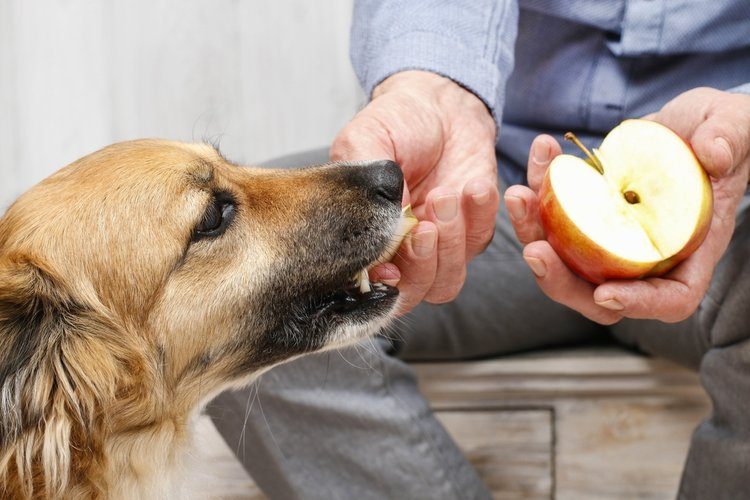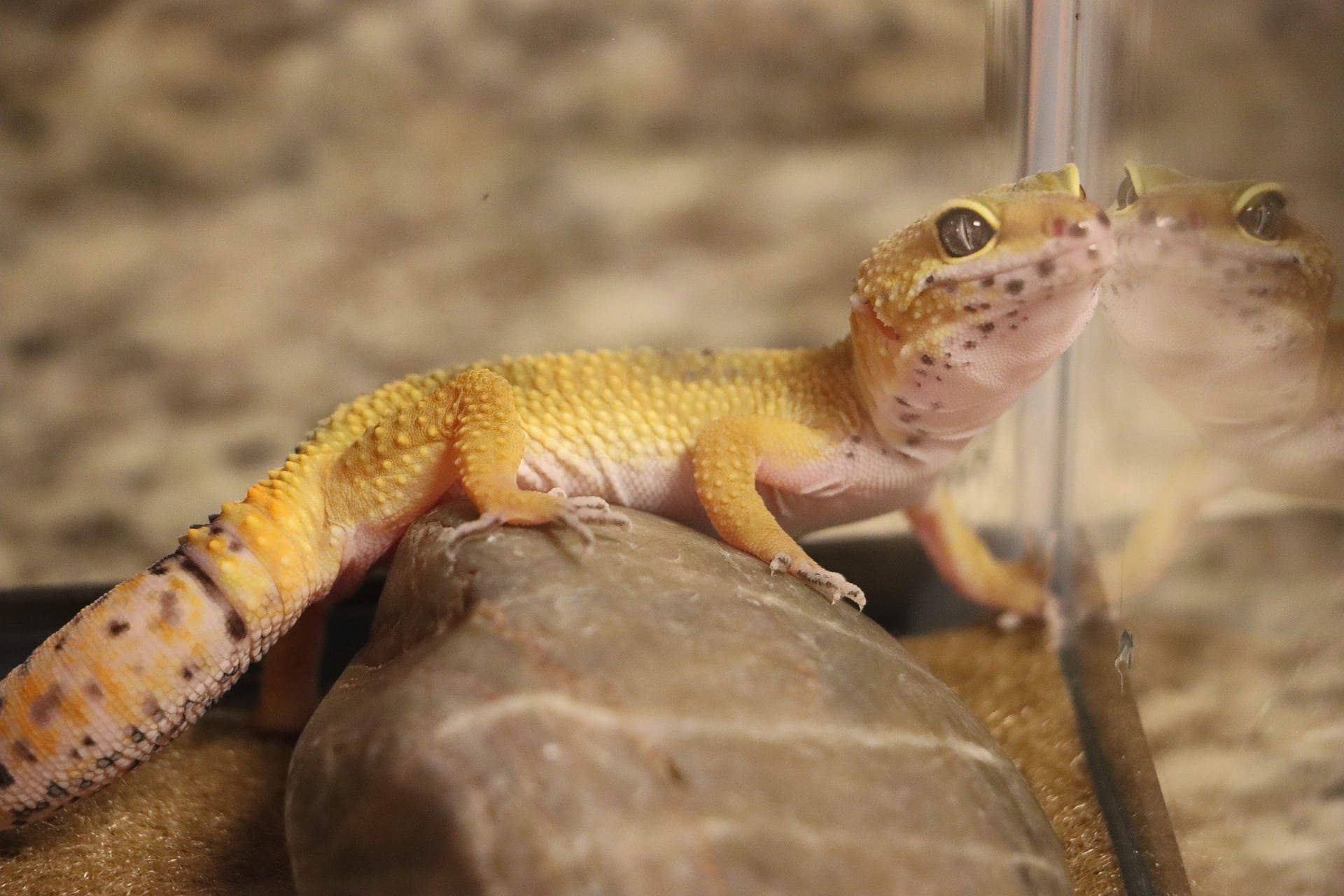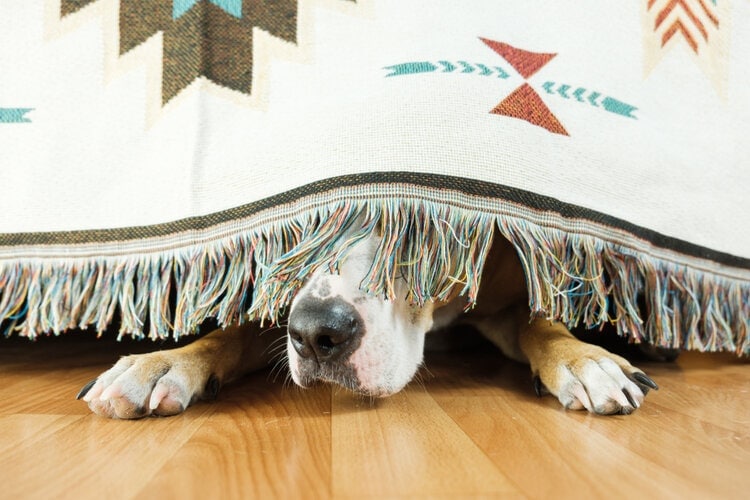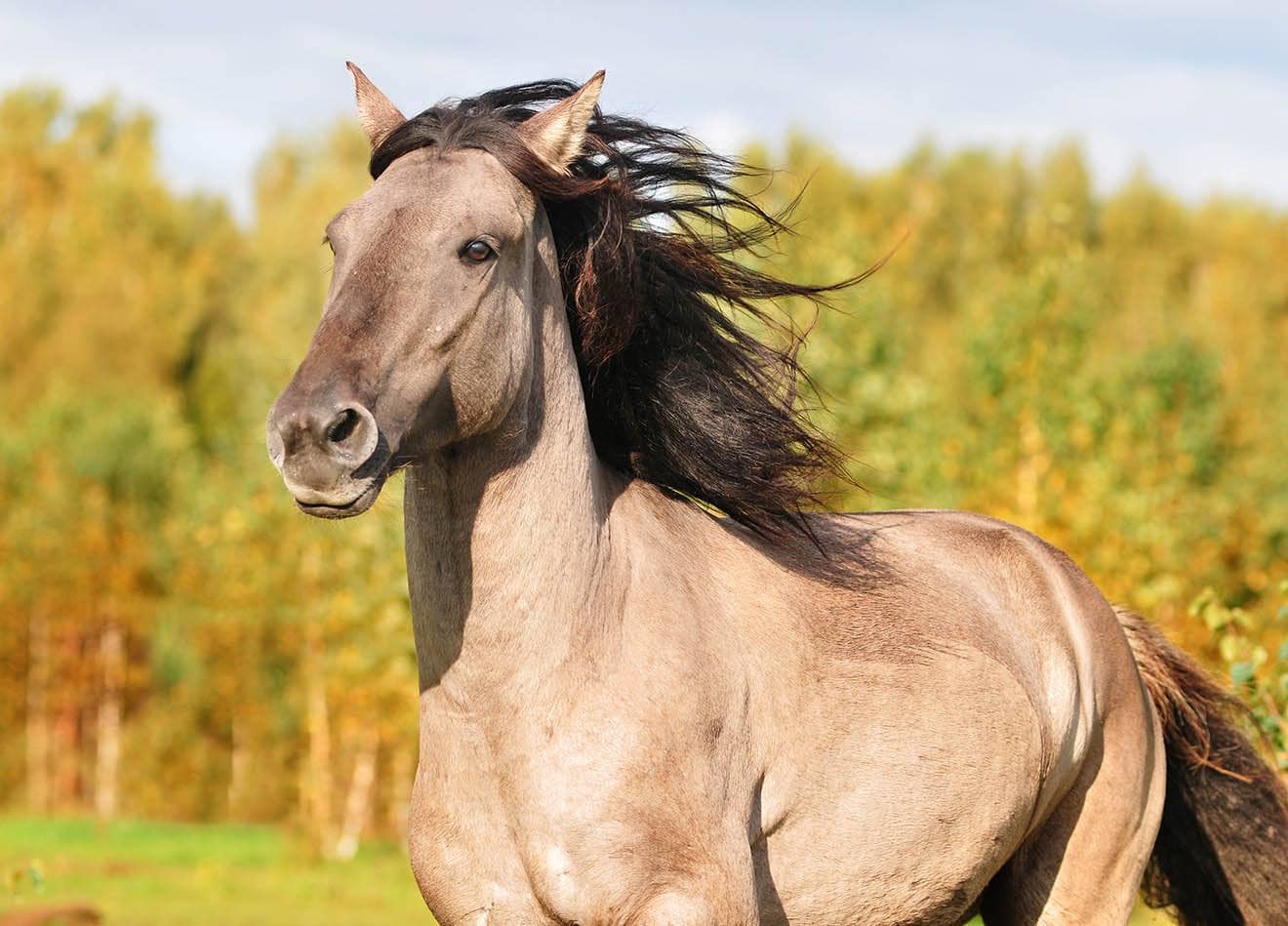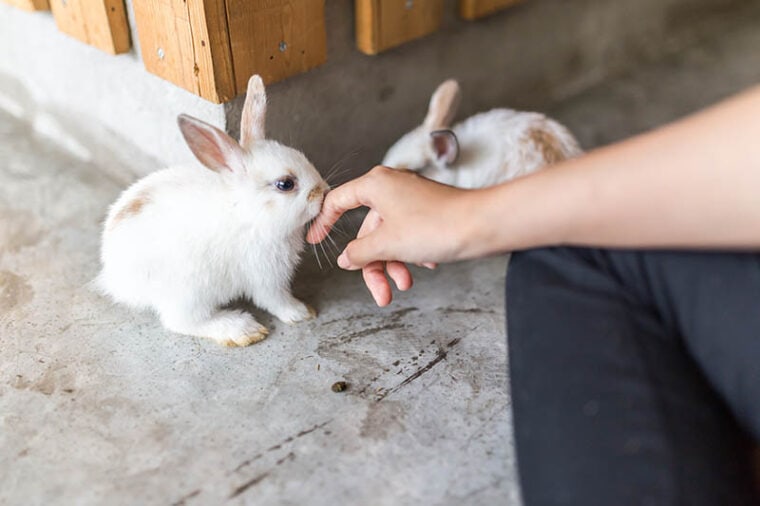
Rabbits are adorable and lovable creatures that can make great pets. More often than not, they’re quite docile and gentle, which is why many people choose them as pets. However, as with any animal, there is always the possibility of getting bitten. Rabbit bites may not seem like a big deal, but they can actually be quite severe. But don’t worry if you do get bitten by your pet rabbit, as there are steps you can take to ensure that you stay safe and healthy. Let’s discuss.
The 5 Things to Do When a Rabbit Bites You
1. Clean the Wound
The first step is to clean the wound thoroughly with soap and water. You should use lukewarm water and mild soap to gently cleanse the area around the bite. This will help remove any dirt or bacteria that may have entered the wound. You should avoid using hydrogen peroxide or alcohol, as these can damage the skin and delay healing.

2. Apply Antiseptic
After cleaning the wound, you should apply an antiseptic ointment or cream to the area. This will help kill any remaining bacteria and prevent infection. You can also cover the wound with a sterile bandage or adhesive strip to protect it from further injury.
3. Seek Medical Attention (If Needed)
If the bite is deep or bleeding heavily, you should seek medical attention immediately. A doctor can assess the severity of the wound and determine if additional treatment is necessary, like stitches or antibiotics.

4. Monitor for Infection
It’s also important to monitor the bite for signs of infection, such as redness, swelling, or pus. And if you notice any of these symptoms, you should contact your doctor right away. In some cases, an infected bite may require more aggressive treatment, such as intravenous antibiotics or surgical debridement.
5. Investigate What Caused It
To prevent future bites, it is important to understand why the rabbit bit you in the first place. Rabbits may bite if they feel cornered or threatened in any way, so it’s important to approach them slowly and calmly. You should also avoid handling rabbits roughly or grabbing them by their ears or legs.

Tips for Preventing Future Rabbit Bites
Preventing rabbit bites is necessary for both the rabbit and the owner.
By following these tips, you can prevent rabbit bites and create a safe and happy environment for both you and your hopping friend.
What Are the Risks of a Rabbit Bite?
Rabbits have sharp teeth and powerful jaws, which they use to defend themselves when they feel threatened. While most rabbits are gentle and affectionate, they may bite if they feel scared or agitated. A rabbit bite can cause puncture wounds that can easily become infected. In addition, rabbits can carry bacteria that can cause serious infections, such as Pasteurella multocida. This bacterium can cause sepsis, meningitis, or even death if left untreated.
So, it’s crucial to understand the risks and take appropriate measures to prevent rabbit bites from happening. Children and the elderly are more susceptible to infection from rabbit bites and must take extra precautions when handling rabbits. So be sure to supervise children while they’re playing with rabbits and teach them how to handle them properly.
The 5 Most Aggressive Rabbit Breeds
Not all rabbits are created equal when it comes to temperament. Some breeds can be more aggressive than others, which can make them a challenge to care for. So, let’s take a look at a few breeds that are not necessarily aggressive per se, but are known to show aggressive tendencies more than other breeds.
1. Netherland Dwarf
This breed is known for its feisty personality and can be prone to biting and scratching if not handled properly. Netherland Dwarfs also have a tendency to be territorial and may become aggressive towards other rabbits.
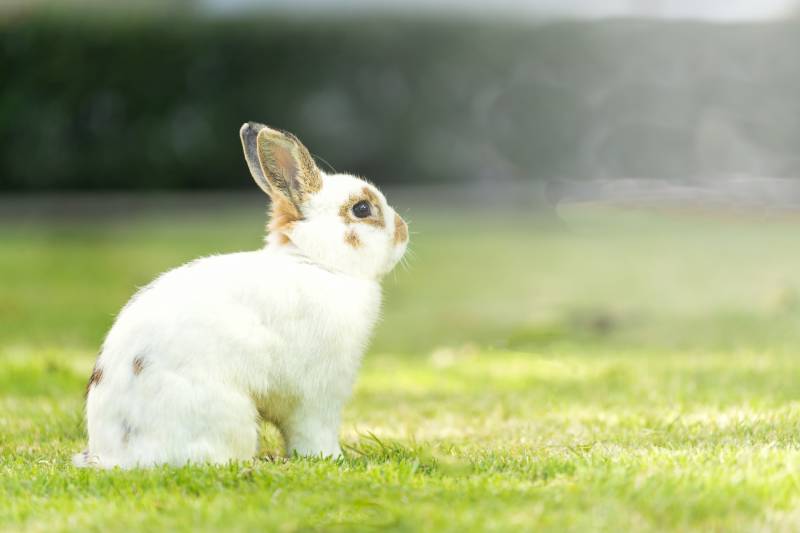
2. English Spot
The English Spot is known for its beautiful coat and distinctive markings, but they can also be quite territorial and aggressive. They may become aggressive towards other rabbits or even humans if they feel their space is being invaded.
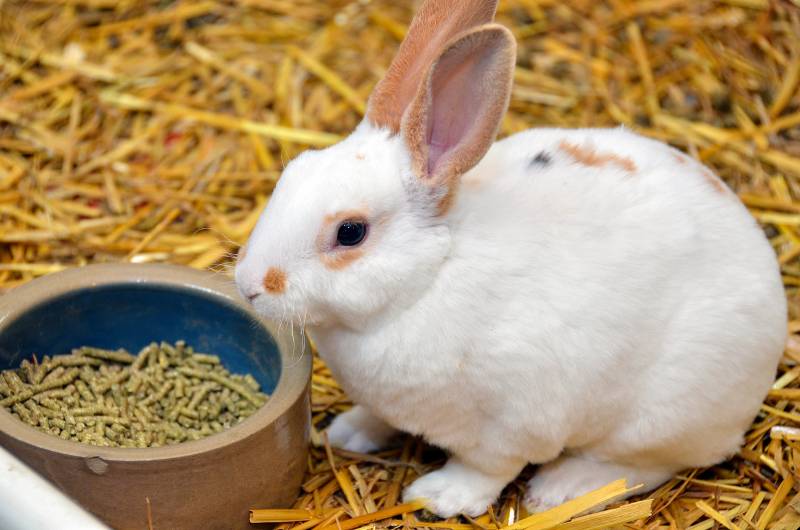
3. Mini Rex
The Mini Rex is a high energy breed that can be quite playful, but they can also be prone to aggressive behavior if they’re not properly socialized. They may become territorial and aggressive towards other rabbits, especially if they’re not spayed or neutered.
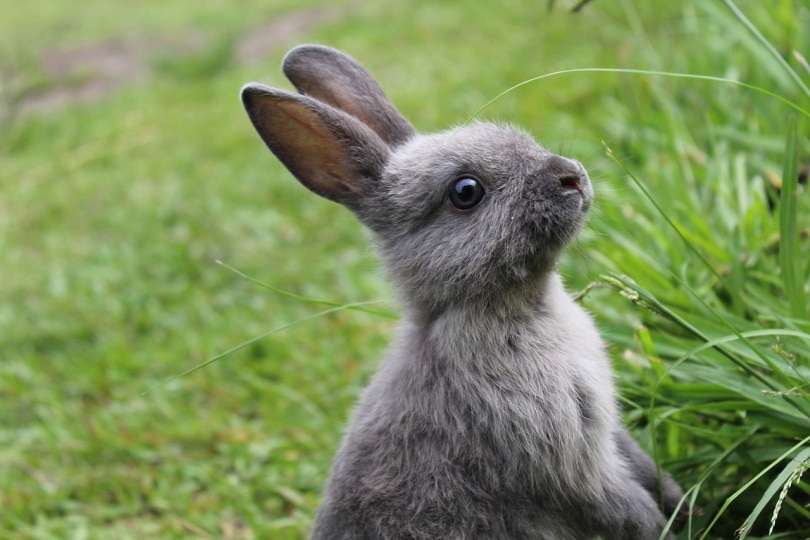
4. Holland Lop
This popular rabbit is known for its cute, floppy ears and gentle nature, but they can also be prone to aggressive behavior if they feel threatened or cornered. Like the Spot, Holland Lops can also get territorial and a tad aggressive towards other rabbits or even humans if they feel their space is being invaded.
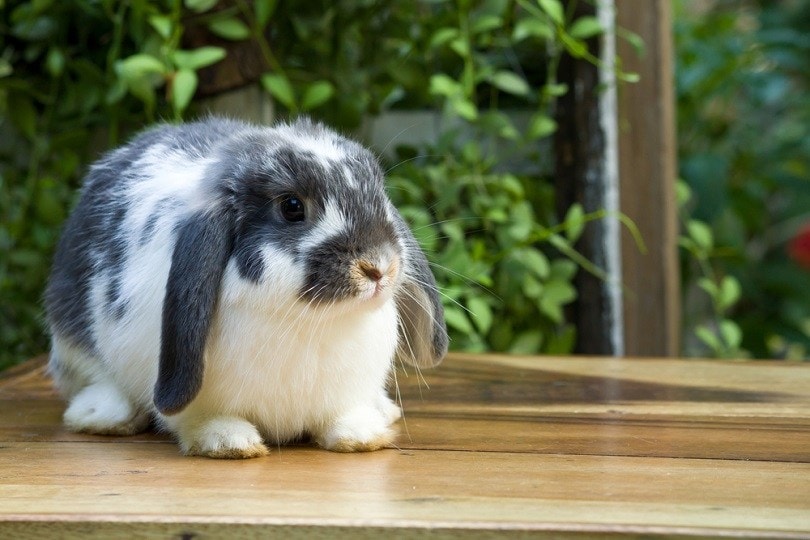
5. Lionhead
The Lionhead rabbit is known for its distinctive mane and playful personality, but they can also be prone to aggressive behavior if they aren’t neutered or spayed. They also become aggressive if they aren’t socialized while they’re young or are handled too roughly.

Characteristics of Aggressive Rabbits
So, what does an aggressive rabbit look like? Well, aggressive rabbits can display a range of behaviors, including biting, scratching, growling, and lunging. They may also become territorial and aggressive towards other rabbits or even humans if they feel their habitat is being violated. Aggressive rabbits may also display body language that indicates they’re feeling threatened, such as flattened ears, a lowered head, and a tense body posture.
Note that aggression in rabbits is not always a breed-specific trait. A rabbit’s personality and behavior can also be influenced by their environment, socialization, and past experiences. This is why it’s super important to socialize rabbits (like dogs) from a young age and provide them with a safe and comfortable living environment to prevent aggressive behavior.
How to Safely Handle and Interact with Aggressive Rabbits
Handling and interacting with aggressive rabbits can be a challenge, but there are steps you can take to minimize the risk of injury. First, it’s best to approach rabbits slowly and calmly, avoiding sudden movements or loud noises that may startle them. It’s also crucial to handle rabbits gently, avoiding any rough movements that may cause them to become agitated (you’ll definitely want to watch this with young children).
If a rabbit does become aggressive, be sure to give them space and allow them to calm down before attempting to interact with them again. It may also be helpful to work with a rabbit behavior specialist who can provide guidance and support in working with aggressive rabbits.

Tips for Preventing Aggression in Rabbits
Preventing aggression in rabbits really starts with providing them with a safe and comfortable living environment. This includes a spacious enclosure that allows them to move around freely, as well as plenty of hiding spots and enrichment activities to keep them mentally stimulated.
Spaying or neutering rabbits can also help prevent aggression, as it can reduce territorial behavior and prevent unwanted breeding. Regular vet check-ups can also help identify and address any underlying health issues that may be contributing to aggressive behavior.
FAQ About Rabbits and Bonding
What rabbit breed should I get?
When considering adopting a rabbit, it’s best to choose a breed that fits your lifestyle and personality. While some breeds may be more prone to aggressive behavior than others, try to remember that each rabbit is an individual and won’t behave the same as the next rabbit – just like with people and other domesticated animals. It can help to spend time with potential rabbits before making a commitment and to work with a reputable breeder or rescue organization that can provide guidance and support in finding the right rabbit for your family.

What kind of environment do rabbits need?
Rabbits need a safe and comfortable environment that meets their physical and emotional needs. They should have a spacious living area that allows them to move around freely and engage in natural behaviors like hopping and running. The living area should also be well-ventilated and free from drafts. You may be surprised to learn that rabbits are sensitive to temperature changes, so it’s important to keep their living area between 60–70 degrees Fahrenheit. They also need access to fresh water, hay, and a balanced diet of pellets and fresh vegetables. And lastly, rabbits need plenty of social interaction and mental stimulation to keep them happy and healthy.
What do domesticated rabbits eat?
Rabbits are herbivores and require a diet rich in fiber to keep their digestive system healthy. The majority of their diet should be hay, which provides both fiber and essential nutrients. Hay, vegetables, and pellets are great to keep these animals in good health.

How do I litter train my rabbit?
Litter training your rabbit is relatively easy (depending on the breed) and can be done using a litter box filled with wood chips or paper litter. First, put the litter box in a corner of your rabbit’s living habitat where they tend to go to the bathroom. When your rabbit uses the litter box, reward them with a treat and plenty of praise. If your rabbit has an accident outside of the litter box, clean it up immediately and place the droppings in the litter box to help them understand where they should be going to the bathroom. It will take some weeks to get it down, but it’s possible with most domesticated rabbits.
How do I provide entertainment and enrichment for my rabbit?
There are plenty of ways to keep your bunny entertained. Rabbits do in fact need plenty of mental stimulation and exercise to stay healthy and happy. So be sure to provide your rabbit with plenty of toys to play with, like cardboard boxes, tunnels, and balls. You can also hide treats around their living area for them to find. You can also set up a play area for your rabbit indoors or outside in the backyard.

What should I do if my rabbit gets sick?
If your rabbit shows signs of illness, like lethargy, loss of appetite, or diarrhea, it’s best to take them to a vet as soon as possible. Rabbits are prone to a few health problems, including dental disease, gastrointestinal issues, and respiratory infections. Early detection and treatment are key to ensuring your rabbit makes a full recovery. You can even have a vet consult over the phone to receive a prescription.
How do I bond with my bunny?
The best way to do this is to spend time with your rabbit each day, talking to them and petting them. Offer them treats to help build trust and positive associations – food always helps. You can also play games with your rabbit, like hiding treats around their living area for them to find. Finally, make sure your rabbit gets plenty of exercise and social interaction to keep them happy and healthy. Simply put, interacting with your rabbit using food, games, training sessions, and even grooming can help you create a better bond with them.
Wrapping Things Up
While some rabbit breeds may be more prone to aggressive behavior than others, it is important to remember that each rabbit is an individual with their own unique personality and behavior. With proper socialization, a safe and comfortable living environment, and regular veterinary care, rabbits can make wonderful companions. By understanding rabbit behavior and aggression and taking steps to prevent it, you can enjoy a happy and healthy relationship with your furry friend.
See Also:
- Why Does My Rabbit Shake? 11 Reasons & What to Do
- Can Rabbits Swim? Is It Safe, and Do They Like It?
- Can Rabbits See in the Dark?
Featured Image Credit: KArd, Shutterstock



